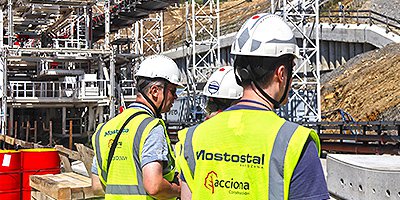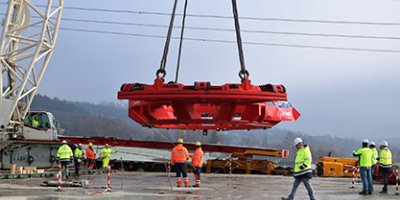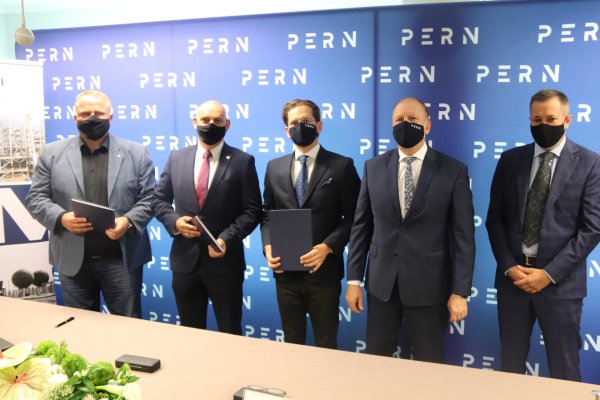Consortium of Mostostal Warszawa and Mostostal Płock will build seven fuel tanks for PERN
The investment is the third stage of the expansion of fuel depots, which PERN is implementing as part of the Megainvestment program. The first stage involved the construction of four tanks with a total capacity of 128 thousand m³ in two locations: Koluszki and Nowa Wieś Wielka, the second stage - recently completed and also implemented with the participation of the consortium of Mostostal Warszawa and Mostostal Płock - consists of nine new tanks with a total capacity of 222 thousand m³ in 6 locations: Dębogórze, Rejowiec, Boronów, Koluszki, Emilianów and Małaszewicze.
- Consortium of Mostostal Warszawa and Mostostal Płock is an example of good cooperation within the capital group. With jointly implemented projects, we can achieve the synergy effect not only in the business sense, but also in technology, which is related to the combination of many years of experience in the market of construction of tanks and industrial installations and other segments of the construction sector - says Tomasz Cierpicki, Director of the Energy and Industry Area at Mostostal Warszawa.
- We are increasing our involvement in the implementation of strategic tank projects. After the successful and completed investments in the depots in Rejowiec and Boronów this year, we begin work in Koluszki, Nowa Wieś Wielka and Dębogórze. These are large and technically advanced tasks that we will implement thanks to our experience, production potential and highly qualified staff - says Robert Kowalski, Member of the Management Board of Mostostal Płock.
The PERN Group is a national and regional leader in raw material and fuel logistics. It manages a network of oil and product pipelines, has about 4.1 million m3 of storage capacity for crude oil and about 2.2 million m3 for liquid fuels. It has a sea transhipment terminal with a capacity of 40 million tons of crude oil and liquid fuels per year.



